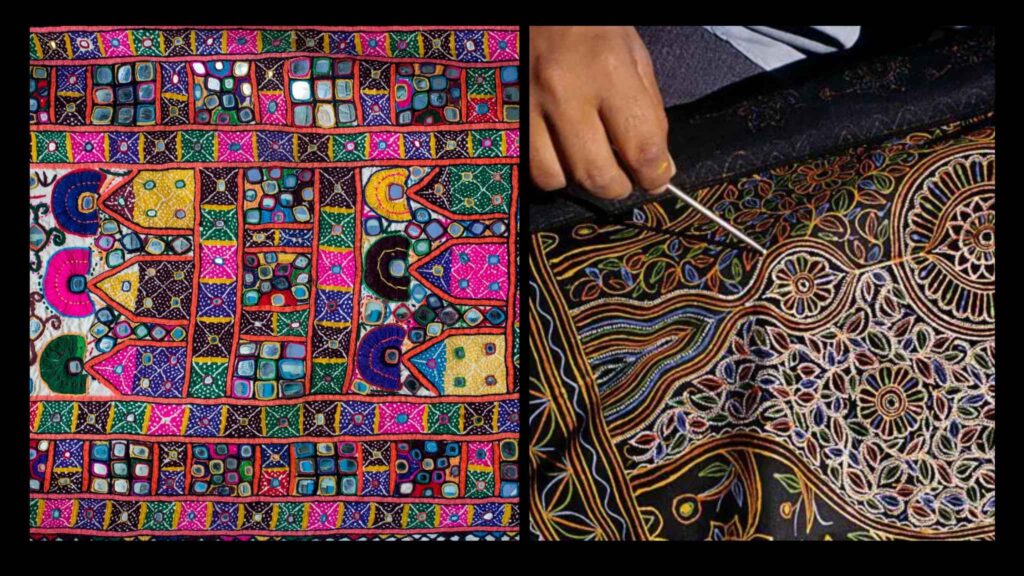Kutch is not only a place. It is an experience. It is a part of the northwestern corner of Gujarat, and it is a state within a state. Barren salt deserts that spread past the horizon and ancient towns full of colour, craft, and culture–this is where contradictions gather and exist in Kutch.
Most of us wonder: Why is Kutch so special, then? Why are people with a more entrepreneurial, creative, and adventurous spirit coming here, year after year? The key to this is the uniqueness of the land; its heritage and hustle. This is not only a tourist attraction site. It is a business case study of interest to all those who enjoy business stories, cultural renaissance, and innovation as tradition. Kutch makes us understand how learning about entrepreneurship can begin with watching artisans, storytellers, salt gatherers, and dream-spinners in small towns.
This blog isn’t about following the common tourist to-do lists. Rather, it is really about Kutch that it is unforgettable, perhaps particularly to the person who is interested in the theme of conflict between culture and commerce. Read on and plan your trip to Kutch soon!

1. A Living Canvas of Art & Enterprise
The state of Kutch has some of the most intricate handicrafts in India. However, it is not only that these crafts are beautiful, but they are also businesses. Textile, rogan art, copper bell, and mirror embroidery are some of the well-known talents of villages like Bhujodi, Niron, and Ajrakhpur in the world. The craftsmen of this place are not keeping tradition as a relic, but they are creating self-made business ideas with it.
The uniqueness of Kutch is the manner in which these ancient arts have evolved to fit the contemporary markets. There are entrepreneurs selling hand woven shawls on Instagram or local cooperatives that sell to design boutiques in Europe. Such incidents are not isolated cases but are part of a bigger idea, which symbolizes the development of entrepreneur and entrepreneurship at the grass level.
People who want to know how to start a business can learn a lot based on how these micro-entrepreneurs start businesses. They know demand, branding, quality control, and even storytelling, despite not having any fancy degrees.
2. Beautiful Contrast: White Desert & Colorful Spirit
Rann of Kutch is a geographical wonder. Most of the year, it is silent, dust-blown, and dreamlike. However, in winters, it is the Rann Utsav that turns it into one of the most distinct festivals in India. The white salt goes on and on in moonlight, tents emerge like mirages in the desert and cultural performances continue through the night.
Rann Utsav is a flourishing economy. It includes dozens of encounters, such as camel rides and folk artists, food stands and tent cities, and thousands of locals are involved. It highlights the fact that even when you establish your business in such a seasonal economy, you will be able to make it successful in the long-run.
The best thing about it is the way young businesses are utilizing this. There are niche opportunities that local homestays, desert safaris, craftspeople and even tech-savvy guides are exploring. It is the live example of all the business ideas.
3. The Heart & Brain of Kutch: Bhuj
Bhuj is not only a city. It is a strategic point to visit the remaining part of Kutch. Moreover, it is surreptitiously tapping itself as a centre of cultural entrepreneurship.
Organizations such as Khamir organization, Shrujan and Kala Raksha have been huge when it comes to providing a platform to the traditional artists. It is this dusty corner in Gujarat that they have established design schools, e-commerce channels and international exhibitions. So, next time when you need entrepreneurship stories in India which began as modest and growing big, you can get them here.
In addition, the entrepreneurs of the new age are also coming up in Bhuj. Cafes that provide food using millet, studios that spread the slow fashion causes, and content designers who inform about the Kutchi culture are changing the meaning of establishing business in a Tier-3 city.

4. Spirit of 3’S: Salt, Sweat and Self Belief
Little Rann of Kutch is a barren region yet the region provides 60% of Indian salt. In this case, Agariyas salt farmers are exposed to hard working conditions all through months. They lead a hard life and yet their determination is stronger.
Most Agariyas are now struggling to get better by becoming entrepreneurs. They also pack salts directly, they have been working on solar drying techniques and also they distribute their products with the assistance of the NGOs.
It is more than a labor story. It is a gritty startup story. To those researching things to know when starting a business, it is a raw but a real lesson that value can be found anywhere provided there is vision.
5. The Language of Textiles & Threads
The textile economy in Kutch is not only about the cloth sale. It is a moving narrative. Every hue, pattern, and type of stitch (Ajrakh, Bandhani, Rabari embroidery) has its reason. They demonstrate identity, geography, community, and evolution.
Old-fashioned slow productions are becoming popular with world designers and in the eco-market. And who is in the lead here? Females and young people in small towns. They are acquiring knowledge on digital marketing, customer engagement, and product development.

6. Places to visit in Kutch: Treasures & Learnings
Most individuals visit the Rann and move on. In reality, Kutch is a place with more treasures that have not been discovered by many. It includes places like:
- Mandvi Beach: It used to be a port town but now, businessmen provide heritage and sailing tours in addition to the nature resort.
- Dholavira: An older Harappan town that brings about business research in conservation of heritage and tourism.
- Lakhpat Fort: A distant, creepy place with a good possibility of writing and making content.
- Nirona Village: Rogan Art can only be practiced here in India; it recently got a mention courtesy of PM Modi, who gifted it to President Obama.
It is not only the beauty that connects all these places, but also a business potential. They keep us in mind that we do not learn about being an entrepreneur all the time in board rooms. Sometimes, it begins in a desert village with needle and thread.
7. Why should Kutch be visited by an entrepreneur?
Kutch is a brainchild. Not Silicon Valley-ish, but on the ground, value-based, human-centered kind of way. Whether you are a startup founder, a content creator, a designer, or are still making out your path as a startup, Kutch brings you:
- Inspiration by being authentic
- Real business models
- Resilience and reinvention case studies
- Availability of unexplored markets
- Partnerships with makers and local innovators
Kutch, in its way, is the solution to 10 things to know before starting a business, all bundled in colour, chaos, and creativity.
Conclusion
Kutch is not all about visiting the white desert or buying crafts. It is a study course on everything to do with entrepreneurship. In the salt pans, in the textile lanes, among the folk artists and folk entrepreneurs, everyone here is a storyteller and a businessperson.
Destined to be an eye-opener, Kutch is a perfect place to visit for people who are curious to know about the life of a small-town entrepreneur or want to explore the most popular entrepreneurs outside of the metro bubble. It makes the lesson that any business is about as much heart and community as it is capital or size.
Therefore, pack your bag, grab an open-mind and go to Kutch. Not only to travel to the depths of a territory, but also to comprehend what is the interaction of convention and determination.
Keep visiting Gujpreneur for more such interesting tales of places located in Gujarat!







